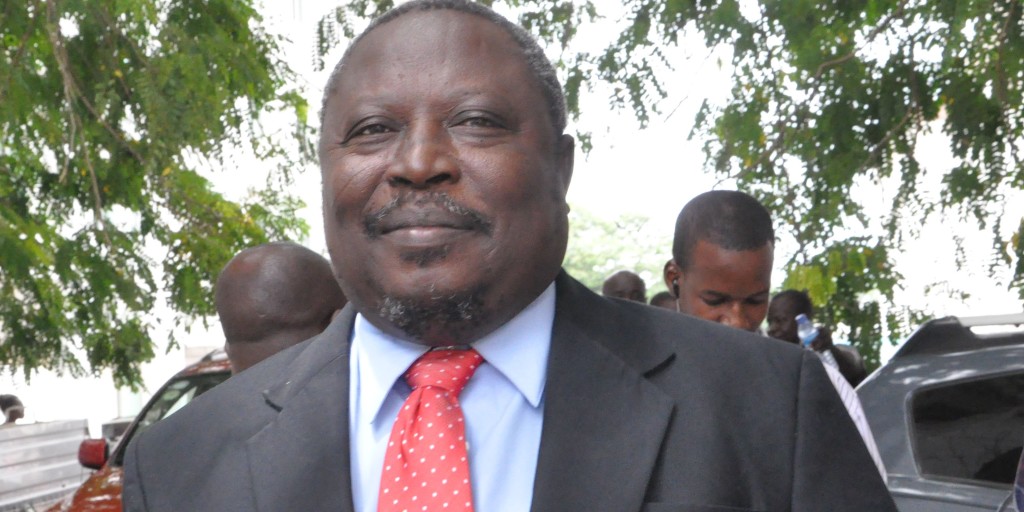Former Attorney General Martin Amidu has issued a strong condemnation of the Ghana Bar Association’s (GBA) unreserved endorsement of the Chief Justice’s decision to close courts in Bolgatanga, a move that he argues could have serious consequences for Ghana’s constitutional integrity and the independence of its judicial system. In a recent article, Amidu warned that the GBA’s support for the Chief Justice’s court closures represents a “dangerous” precedent for Ghana’s democratic processes and the rule of law, suggesting that the blanket endorsement risks eroding the judiciary’s role as an independent pillar of democracy.
Amidu criticized the Ghana Bar Association for what he described as “unbridled support” of the Chief Justice’s administrative actions, cautioning that such unchecked endorsement not only lacks critical scrutiny but borders on sycophancy. “The unbridled support of anything and everything the Chief Justice says or does…borders on sycophancy,” Amidu asserted. He argued that the judiciary, as an institution central to safeguarding the rights of Ghanaians, must be held accountable for its decisions, particularly when they impact public access to justice. Blind loyalty to administrative decisions, he warned, risks compromising the judiciary’s independence and could potentially damage the public’s trust in the institution.
Amidu’s critique also extended to the Chief Justice’s close relationship with the National Security Council, questioning whether the court closures were genuinely driven by independent judicial reasoning or were influenced by external security directives. He expressed concerns that the Chief Justice may have acted under “instructions… from the National Security Council,” suggesting that this dynamic could set a dangerous precedent for the judiciary, especially as the nation heads into the 2024 general elections. According to Amidu, a judiciary that is swayed by external influences, particularly from security forces, threatens the principles of impartiality and independence that are foundational to the rule of law.
The closures of courts in Bawku, Bolgatanga, and surrounding areas, justified by the Chief Justice as a measure to protect court officials and the public amid rising security concerns, have drawn intense scrutiny and opposition. In a memorandum, the Judicial Secretary conveyed that the decision was intended to address the escalating tensions and potential threats in the region, which could compromise the safety of court personnel and attendees. However, Amidu labeled this rationale as “naïve” and questioned the logic of including Bolgatanga in the court closures. He argued that Bolgatanga, as the regional capital, has historically remained unaffected by the conflict that has periodically disrupted Bawku and nearby areas. “Throughout the Bawku conflict… the regional capital has never been… in the conflict area,” Amidu pointed out, challenging the validity of the Chief Justice’s safety concerns as a basis for the closures.
Amidu expressed further alarm at the potential consequences of these court closures on citizens’ fundamental rights and access to justice. By suspending court operations in Bolgatanga and other parts of the region, he argued, the judiciary risks infringing on citizens’ legal rights, especially during an election period when the need for judicial oversight is paramount. “We the People demand Parliamentary oversight of the administrative decision…to close the High Court in Bolgatanga and its environs,” he stated, calling on lawmakers to scrutinize and, if necessary, overturn the decision. Amidu emphasized that in a democratic society, judicial functions should remain accessible to all citizens, particularly during politically sensitive times when the potential for election-related legal disputes is heightened.
The former Attorney General also criticized the apparent lack of consultation with local legal stakeholders before implementing the closures, a process he believes is essential for decisions that directly affect the legal community and public access to justice. Amidu questioned whether the Chief Justice sought input from lawyers, judges, and community leaders in the affected regions, stating that the exclusion of these stakeholders undermines the legitimacy of the decision. He argued that the input of local practitioners is critical, particularly in decisions that have such significant ramifications on public access to judicial services.
In addition to his critique of the GBA and Chief Justice, Amidu raised concerns over the broader implications of this administrative move on Ghana’s democratic framework. By shuttering courts in multiple areas of the Upper East Region, he contended, the judiciary inadvertently compromises citizens’ ability to seek legal redress. He suggested that a functional judicial system is a fundamental requirement in any democratic society, as it guarantees that citizens have avenues to resolve disputes, particularly those related to electoral matters. Amidu warned that the court closures could have serious legal consequences, possibly impeding the fair handling of election-related grievances and undermining the rule of law.
Amidu’s pointed criticism comes at a time when political and civil rights groups are closely watching the government’s actions ahead of the 2024 elections. As Ghana prepares for a crucial election, the independence of the judiciary and the transparency of its administrative decisions remain under intense scrutiny. Amidu’s remarks serve as a reminder of the judiciary’s obligation to uphold its duty impartially, especially during periods of heightened political tension.
The call for parliamentary oversight, voiced by Amidu, has also drawn attention to the broader role of elected representatives in ensuring the judiciary remains accountable. By urging Parliament to review the Chief Justice’s administrative decision, Amidu highlighted the critical function that legislative bodies play in overseeing judicial operations, which must remain transparent and fair. His appeal reflects a commitment to democratic principles and the belief that no arm of government should operate without checks and balances, particularly when decisions impact fundamental rights.
Amidu concluded by reiterating the importance of a transparent, independent judiciary that serves all citizens equally, irrespective of political pressures or security concerns. He argued that in a democracy, access to justice is a right that should not be compromised, even in times of uncertainty. His impassioned plea calls on all stakeholders—judicial officials, the Ghana Bar Association, political leaders, and citizens—to safeguard the integrity of the judiciary and protect it from any influences that could weaken its foundational role in upholding democracy.
In this context, Amidu’s criticisms serve as a powerful reminder of the judiciary’s responsibility to operate transparently, independently, and in service of all Ghanaians. His challenge to the Ghana Bar Association and the Chief Justice underscores the importance of vigilance in protecting the rule of law, particularly during politically charged times. As Ghana approaches the 2024 elections, Amidu’s call for oversight and accountability highlights the urgent need for a judiciary that stands as an impartial arbiter, committed to justice and the constitutional rights of every citizen.




